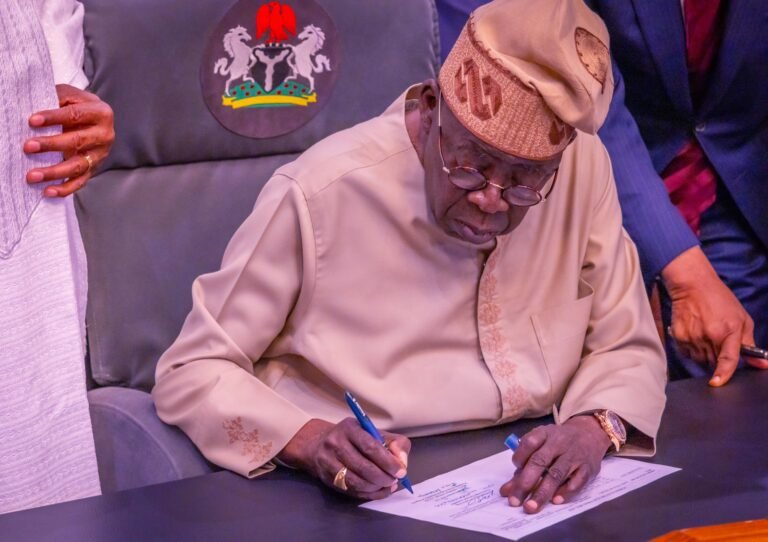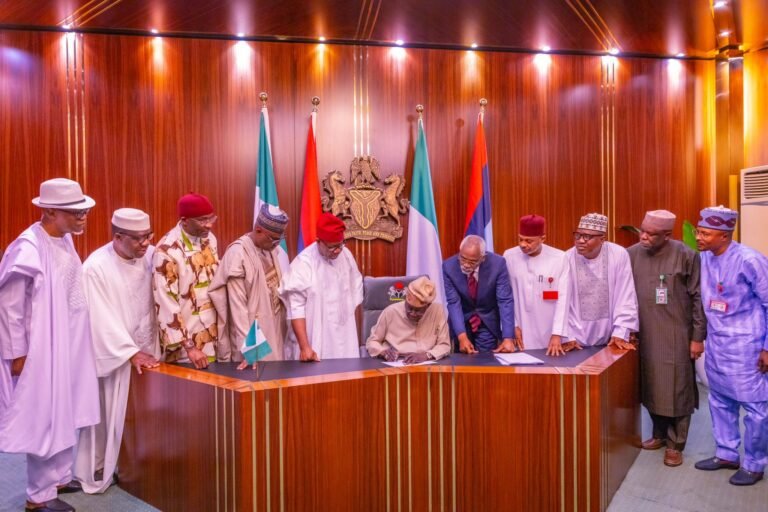The federal government of Nigeria has announced a landmark decision to send its first citizen into space. This historic move was revealed by the Director General of the National Space Research and Development Agency (NASRDA), Mathew Adepoju, during a press conference in Abuja on Wednesday.
“This collaboration marks a significant milestone in Nigeria’s 25th anniversary of Space Exploration journey and opens new opportunities for scientific research and technological advancement,” Adepoju stated.
The announcement underscores Nigeria’s commitment to advancing its capabilities in space science and technology, positioning the nation as a key player in the global space community.
Adepoju elaborated on the initiative, highlighting the potential benefits.
“The Human Space Flight programme is one of the cardinal objectives of our National Space Policy. To support this, we established the Department of Physical and Life Sciences three years ago,” he said. He emphasised the numerous spinoffs and opportunities this program would bring for Nigerians.
Achieving the Feat of Sending Nigerians to Space
Minister of Innovation, Science, and Technology, Uche Nnaji, reaffirmed the significance of human spaceflight as a core objective of Nigeria’s National Space Policy and Programme (NSPP).
The NSPP, approved in 2001, identified human spaceflight as one of its pillars, with a 25-year roadmap initiated in 2005 aiming for the first human spaceflight by 2018.
“We are about six years behind schedule, but the signing of the MoU signifies our commitment to achieving this goal,” Nnaji said.
Sam Hutchison, co-founder of the Space Exploration and Research Alliance (SERA), emphasised the inclusive nature of the programme, allowing Nigerians aged 18 and above to apply.
“The process will be democratic, allowing the Nigerian people to select four potential astronaut candidates before a final selection,” he explained.
This approach aims to open up access to space exploration to ordinary Nigerians, not just scientists or engineers.
Challenges on the Ground: Epileptic Electricity
However, while Nigeria dreams of space, it faces significant challenges on the ground, particularly with its electricity supply. The country has long struggled with unreliable power, with frequent outages affecting daily life and industrial activities. This persistent issue raises questions about the feasibility and prioritisation of such an ambitious space programme.
Critics argue that before embarking on expensive and technologically demanding projects like human spaceflight, Nigeria should address more immediate infrastructural deficits, especially its epileptic power supply.
Ineffectiveness of NIGCOMSAT
Moreover, there have been concerns regarding the effectiveness of the Nigerian Communications Satellite (NIGCOMSAT).
Launched with the promise of revolutionising communications and boosting Internet access across the nation, NIGCOMSAT has not lived up to expectations. Reports of operational inefficiencies and limited impact on the country’s telecommunications landscape have been prevalent.
This history of underwhelming performance in space-related endeavours casts doubt on the successful execution of the human spaceflight programme.
While the announcement of Nigeria’s plan to send its first citizen to space is a significant and ambitious step, it must be viewed in the context of the country’s current infrastructural challenges and past performance in space initiatives.
Addressing the fundamental issues of electricity supply and enhancing the effectiveness of existing space assets like NIGCOMSAT will be crucial for the success and sustainability of such high-profile projects. Only then can Nigeria truly achieve its lofty space aspirations and deliver tangible benefits to its citizens.


























